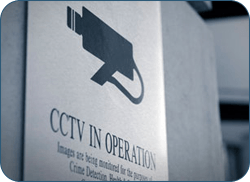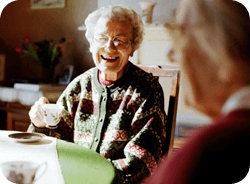 There is an ever more reason for concern for the safeguarding of the elderly in Care Homes. It is a trending subject that appears daily in the media and no region across the country has escaped the publicity of ‘abuse cases’ in care homes.
There is an ever more reason for concern for the safeguarding of the elderly in Care Homes. It is a trending subject that appears daily in the media and no region across the country has escaped the publicity of ‘abuse cases’ in care homes.
The debate points to a number of attributes on how best to stamp out abuse in residential care homes, but for now there doesn’t seem to be a practical solid solution to put forward.
In a signposting document which has been published today ahead of a full public consultation, Andrea Sutcliffe, Britain’s first Chief Inspector of Adult Social Care, said: “We would like to have an open conversation with people about the use of mystery shoppers and hidden cameras, and whether they would contribute to promoting a culture of safety and quality, while respecting people’s rights to privacy and dignity.”
 It is important to consider the culture of care homes and whether we want them to have the same kind of atmosphere as a prison. It is of course right to investigate specific complaints, but this should not entail the routine, undisclosed surveillance of our loved ones.
It is important to consider the culture of care homes and whether we want them to have the same kind of atmosphere as a prison. It is of course right to investigate specific complaints, but this should not entail the routine, undisclosed surveillance of our loved ones.
Any measures should be both necessary and proportionate, a balance that is essential to maintain in such a sensitive environment and where emotions are likely to run high if wrongdoing is alleged.
What must be remembered is that care homes are just that, homes.
The vast majority of residents, whilst vulnerable, completely have their wits about them and should be fully consulted before any CCTV cameras are installed, especially if the cameras are to be in their private rooms. Any reforms should be focused on ensuring residents feel safe and comfortable in their home, not increasing stress through unnecessary surveillance.

Cameras and sharing film may be a growing part of 21st century life, but they will just undermine care workers further and suggest they can’t be trusted. Rather than invade older people’s privacy and disrespect their dignity, we as a nation should value older people, their care and those who provide that care.
Surveillance CCTV in Care Homes: The need for a code of conduct
Chair of Four Seasons Health Care Ian Smith called for an industry wide debate on this topic and well informed guidance from the Care Quality Commission and the Department of Health.
“It is very important that we have a code of conduct,” he said.
“The biggest argument against the installation of CCTV is privacy. We need to ensure we preserve people’s human dignity and privacy and observe their human rights. Otherwise, we are failing in our duty of care.
Please visit the following link to read more: Surveillance CCTV in Care Homes – CQC.
The views and opinions of many organisations are definitely divided.
Surveillance CCTV in Care Homes – the Pro’s and Cons:
Yes
Your Voice Matters calls for CCTV to be installed in all care, nursing and residential homes. This must be managed by an independent body not linked to the Government or care sector organisations such as the NHS. The police recognised that installing CCTV in station cells protected them and those in their custody. Nurseries looking after babies and small children have CCTV, as do supermarkets and shopping centres. There would be no pressure on good carers to whistle blow, which can lead to disastrous results for them in terms of bullying, depression and at worse losing their job.
No
The issue of surveillance is one which has been in the news quite a bit recently. Families taking the decision to install hidden cameras in care homes on their own merits. Safeguarding of people considered vulnerable is vital and a ‘zero tolerance’ attitude towards abuse is important. It is difficult to see how a policy to use surveillance would be justified unless there were strong evidence. Professional and thorough recruitment systems, clear policies and procedures, and on-going training opportunities, ought to be the best means of ensuring staff deliver quality care and support.
While secret cameras aided Panorama, are they the answer to tackling the much wider prevalence of poor care? Wouldn’t it be better for us to address the symptoms underlying poor care? Whats your view on Surveillance CCTV in Care Homes: Is it an invasion of residents Human Rights?
